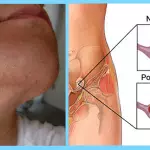Water weight gain can make you feel like you have a weight problem when in reality you are just seriously bloated. It doesn’t mean you are doing something wrong. It is quite common in pregnant women, those taking certain medications, and those that just aren’t getting enough physical activity for one reason or another. Fortunately, shedding water weight and fighting the bloat is nowhere nearly as difficult as actually losing real weight. Let’s look at some ways to counteract bloating and make you feel better on and off the scale.
Get Moving
Exercise is a great way to fight the bloat. Yes, time can be an issue in a fast-paced world, but you can fit in exercise without taking time out just for it. Take the stairs instead of the elevator. Park a little further away. Take a walk during your lunch break. We also recommend the 30-Day planking challenge that takes only 4 minutes a day for 30 days. Sweating excretes both excess water and sodium, two of the major factors in bloating problems. Exercise is good for your health in general as well, so get moving and fight the bloat.
Drink More Water
It seems counterintuitive, right? To get rid of the extra water your body is retaining, you need to drink more water Yet, that’s exactly how it works. Even a partially dehydrated body starts to hold on to water for hard times. When your body is getting plenty of fresh water, it doesn’t hold on to the reserves any longer, and pretty soon the water weight is history. The Chicago Tribune says nearly half of Americans aren’t drinking enough water. To ward of dehydration the Mayo Clinic recommends you drink a glass of water with and between each meal. If you’re exercising, then be sure to drink water before, during and after. Try one of these 5 delicious fruit-infused water recipes to help you slim down, detox, boost your metabolism, increase your energy, and more!
Check Your Magnesium
Water retention is a symptom of magnesium deficiency, so this could be another thing to check out if you are having problems with unexplained bloating. There are tests to make sure you are getting enough magnesium from your diet and absorbing it properly. You can boost magnesium intake by eating foods like nuts, whole grains, and avocados. Supplements are also available in extreme cases.
Avoid Alcohol & Caffeine
Alcoholic beverages dehydrate the body. This is why people that overindulge in alcohol often suffer hangover symptoms the following morning. It’s because they are low on water. You don’t have to drink heavily to feel the effects. A little dehydration can go on to really contribute to water weight gain. Your morning cup of coffee is no better. Caffeine in coffee is a known diuretic. This may help in the immediate, but overall, it’s increasing the chances that your body resorts to water retention. Avoid alcohol and caffeine to minimize the chances of further bloating.
Watch Your Sodium Intake
You are part of a society where everything is lightning fast. That’s why so many people turn to processed, cancer-causing foods and fast food restaurants for meals on the go. However, both of these are quite often packed with sodium. Excessive salt intake causes the body to retain water. Fortunately, there is quick cure. Cut back on the sodium, and then drink more water. Water dilutes the extra sodium in no time, and gets your belly feeling lighter in no time.
These are just a few ways to combat water weight gain and bloating. This is a normal function of your body. When the body perceives a water shortage (or a sodium surplus), it moves to counteract the problem by retaining water. Fortunately, with just a little effort, you can fight back against the bloat and get that water weight off of you fast.


 Polycystic Ovarian Syndrome Symptoms & Signs You Need to Know
Polycystic Ovarian Syndrome Symptoms & Signs You Need to Know







